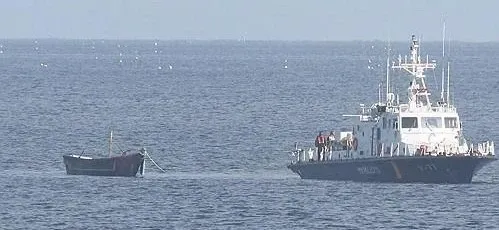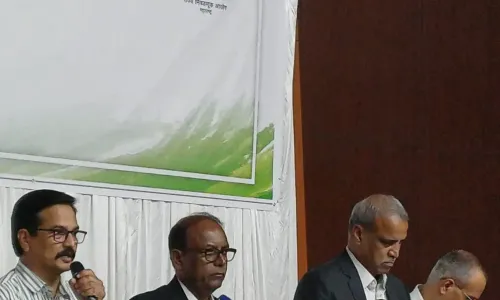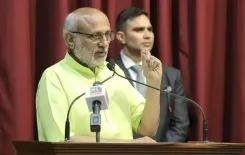Will South Korea Soon Repatriate Six North Koreans Rescued at Sea?

Synopsis
Key Takeaways
- South Korea plans to repatriate six North Koreans rescued from the sea.
- The decision is rooted in humanitarian concerns.
- All individuals have expressed a desire to return to North Korea.
- Weather conditions will influence the timing of repatriation.
- The government prefers a sea route to avoid UNC supervision.
Seoul, July 7 (NationPress) The government of South Korea has announced plans to repatriate six North Koreans who were rescued from the southern side of the inter-Korean maritime boundary, as reported by a government source on Monday.
According to a high-ranking official who spoke on the condition of anonymity, President Lee Jae Myung has instructed that the repatriation be conducted swiftly and safely, emphasizing that the situation of these stranded individuals is a humanitarian concern.
In a similar incident in May, South Korea rescued four North Koreans who had drifted into the South Korean territory in the East Sea, following another case in March where two North Koreans were saved in the Yellow Sea. All rescued individuals have reportedly expressed their desire to return to North Korea, as per Yonhap news agency.
This planned repatriation comes amidst North Korea's silence regarding Seoul's repeated attempts to facilitate the return of these individuals, communicated through the US-led UN Command and various media outlets. Communication lines between the two Koreas remain severed due to ongoing tensions.
Regardless of North Korea's response, it is anticipated that the South Korean government will proceed with the repatriation as early as this week, depending on weather conditions.
The government is considering a sea route for the repatriation, as utilizing the land route through the inter-Korean border village of Panmunjom would necessitate the oversight of the UNC, which is opposed to unilateral repatriations.
It is likely that the individuals will be returned on the same wooden boats from which they were rescued, crossing the Northern Limit Line, the effective maritime boundary, similar to actions taken in 2017.
In May 2017, during a period of suspended communications between the two Koreas, South Korea unilaterally repatriated six fishermen who had been rescued on the South Korean side of the sea after repairing their vessel.









